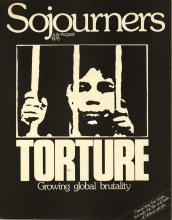When this article appeared, Claude Pomerleau taught comparative government at the University of Notre Dame and served as Dom Helder Camara’s host when he was recently on campus to receive an honorary degree. In his private journal, Pomerleau recorded his responses to Camara:
Dom Helder is scheduled to arrive unaccompanied at the St. Joseph County Airport at midday on Saturday. I was assigned to be his host for the weekend because of research I did in Latin America and Brazil. I am wondering if I will recognize him from photographs, just as a short, frail cleric enters the baggage depot. He is wearing a plain cassock. He extends a hand to me in greeting; he wears no ring. A small wooden cross hangs from a simple chain around his neck. He wears a woolen topcoat that is nearly floor-length. He carries a crumpled handbag. He is unshaven and looks tired. Curious bystanders are staring at us. Dom Helder looks like the leader of a religious sect from California.
Campus - Saturday Afternoon
Read the Full Article

